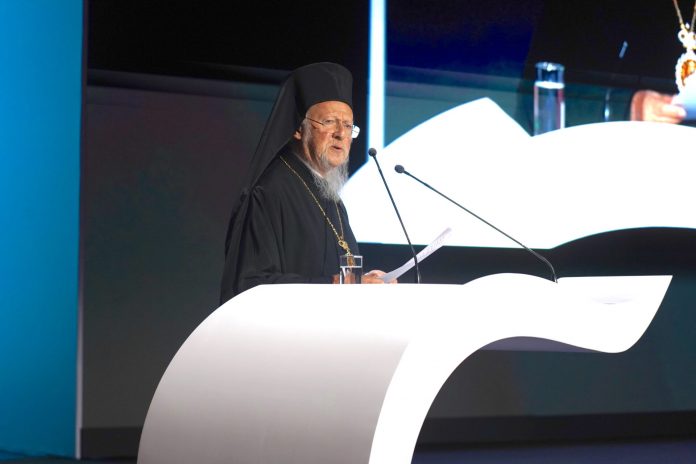KEYNOTE ADDRESS by His All-Holiness Ecumenical Patriarch Bartholomew 9TH OUR OCEAN CONFERENCE (Athens, April 16, 2024)
Μακαριώτατε Ἀρχιεπίσκοπε Ἀθηνῶν καί πάσης Ἑλλάδος κ. Ἱερώνυμε,
᾽Εξοχώτατε κ. Πρωθυπουργέ τῆς Ἑλλάδος,
Your Excellencies,
Distinguished dignitaries and dear participants,
It is a privilege to address you in this 9th Our Ocean Conference that convenes governmental leaders and environmental advocates, NGOs and the private sector, as well as scientists and economists, to discuss how to address the climate crisis as it impacts marine life. We are personally grateful to the Prime Minister of the Hellenic Republic, His Excellency Mr. Kyriakos Mitsotakis, for hosting this year’s event and for graciously inviting us to be with you.
This gathering finds the world in the middle of uncertainty as conflict escalates in the Middle East, where so many lives have already been lost and so many innocents still face starvation. Today, as we focus our attention on the detrimental impact of human activity on our environment, it is also important to remember the devastating implications of war on our planet and to pray for peace in the Middle East and in the whole world. Please permit us to ask for a moment of silence as we turn our mind and heart to the victims of war in Israel and Palestine, as well as in our own continent.
For over thirty-five years now, from the tenure of our predecessor Ecumenical Patriarch Demetrios of blessed memory, the Ecumenical Patriarchate has spoken prophetically on our shared obligation—we would call it our common vocation—to protect creation. This has been the core vision of our own modest ministry for over three decades. Permit us, then, from our long experience, to bring three matters to your attention:
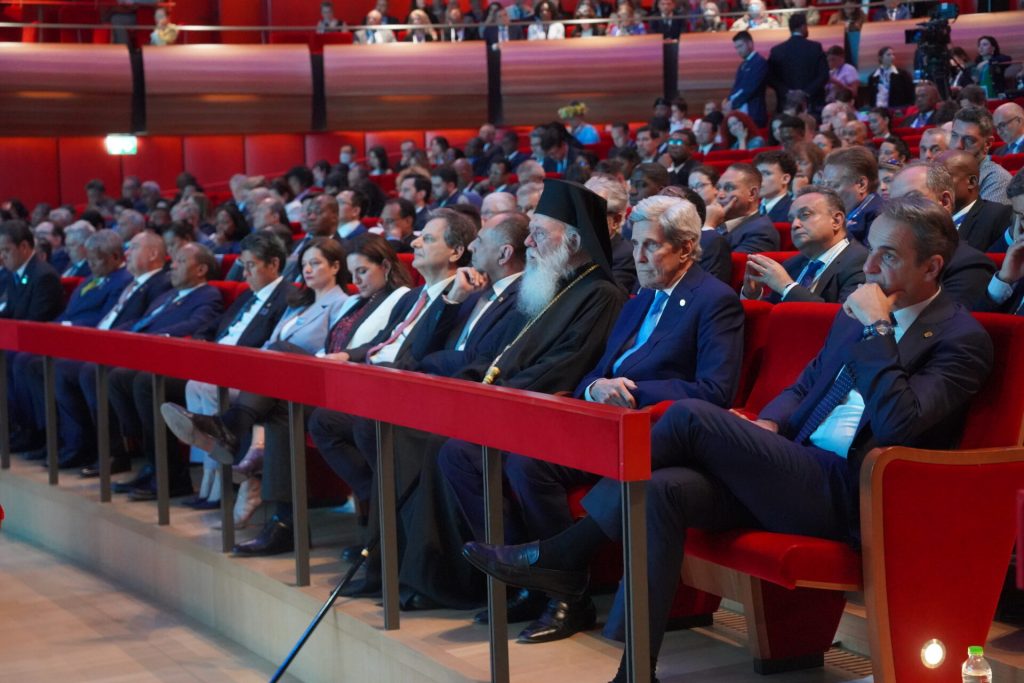
- (i)First, it is not coincidental that we deliberately selected clean water in our rivers, seas and oceans as the highlight of our attention and concern. All the ecological symposia of the Ecumenical Patriarchate have convened and concentrated on such bodies of water as the Adriatic and Black Seas, or the Amazon and Mississippi Rivers. Our latest environmental symposium occurred in 2018, opening at the Acropolis Museum, here in Athens, and continuing in the islands of the Saronic Gulf.
Think of the central role of baptism in Christian initiation and purification; or think of the sacred feast of Epiphany each January, when we bless the waters all over the world with the cross. Water has a spiritual and symbolical significance, reminding us that the planet’s water is not a private resource for some, but a sacred gift for all. Indeed, every person here—every person on this planet—is a miniature ocean, a microcosm of the waters that sustain life. In brief, the oceans themselves unite every continent, every coastline, and every citizen of our planet.
- (ii)A second dimension of our ecological initiatives overlaps with your encouragement of young women and men with your Youth Leadership Summit. In the conversation about caring for creation, religion has a unique contribution to make inasmuch as it looks back at the origins of creation, while looking far ahead to the age to come. These are not merely theoretical doctrines; they establish a spiritual depth to the oceans and a permanent value to everything in our world.
Moreover, this element of tradition or legacy reminds us that we owe it to our children and successors that we leave behind a world at least as good, if not better than the one we received. However, the tragic reality is that ours will actually be the first generation to bequeath a planet spoiled by ignorance and indifference, as well as by abuse and greed. If we are not prepared to accept responsibility before the Creator and His creation, perhaps we can be moved by the judgment that we are depriving our children from fair and just access to the world’s resources.
- (iii)A third and final aspect of our mission to raise awareness and advocate for sustainable practices is the collaborative mandate of our response to the pollution of our oceans. In church language, such partnership is called communion, which is the term we use to describe the very being of God, just as it is the term we use to advance the common good.
This is why, in all of our endeavors and programs, we always emphasize the importance of working with other people, other cultures, and other religions. We know today that everything we do in one corner of the planet has immediate and lasting consequences for the rest of the planet. We are conscious today that religions can be a powerful ally in addressing issues of social justice. And in recent years, with the outbreak of Covid-19, we appreciate today the crucial need for faith to be in dialogue with science.
Dear friends,
It is our obligation and responsibility to take action . . . and, indeed, to take action now. All of us—and all of us together!—must address what is undoubtedly the most urgent challenge of our time, a challenge with significant repercussions for peace and justice in our societies, for the populations and politics in our communities, and for the economy and security of our nations.
It will be transformative for the generations that follow us if—from this conference, in our deliberations, and as we depart—each of us can take a first and tangible step. We may not be able to solve everything, but we can all at least do something. In this way—if only we demonstrate that we care enough for them, their environment, and their oceans—we will regain the confidence of those who place their hope in us.
That is our prayer for everyone here today. Let us not leave without pledging specific action! May God bless you all in this noble work.
Thank you for your kind attention!
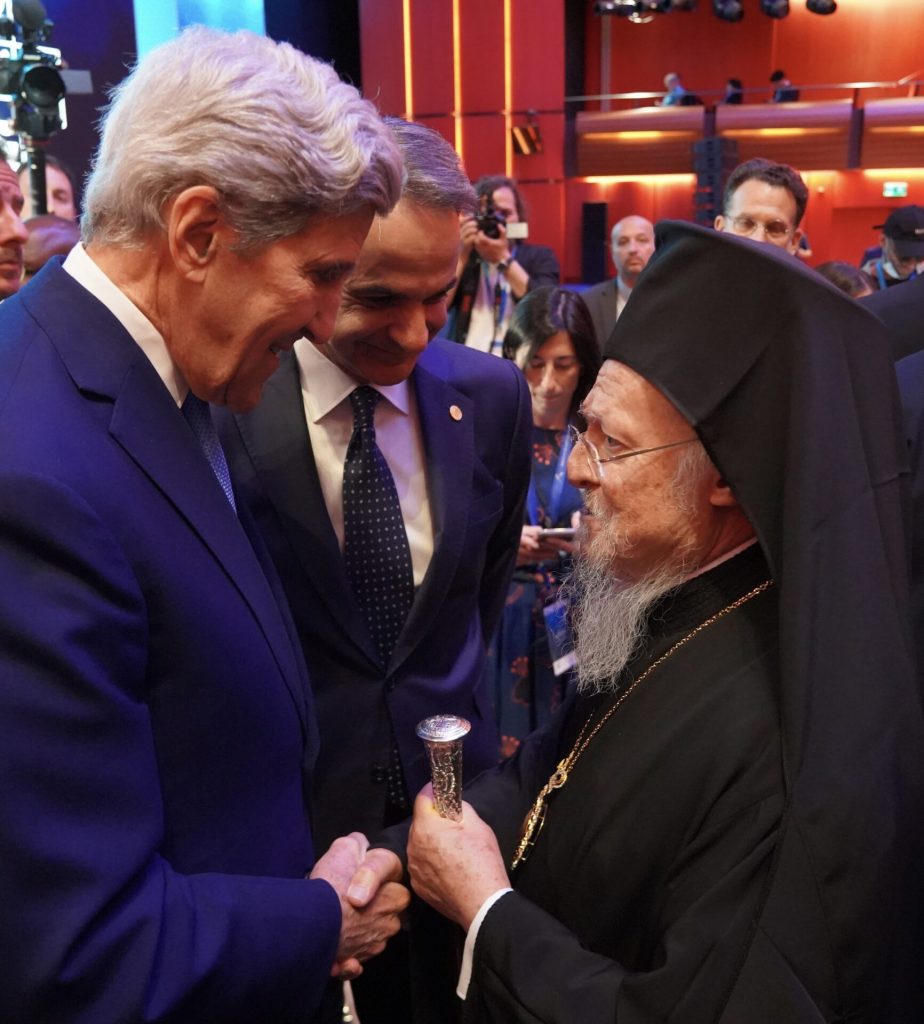
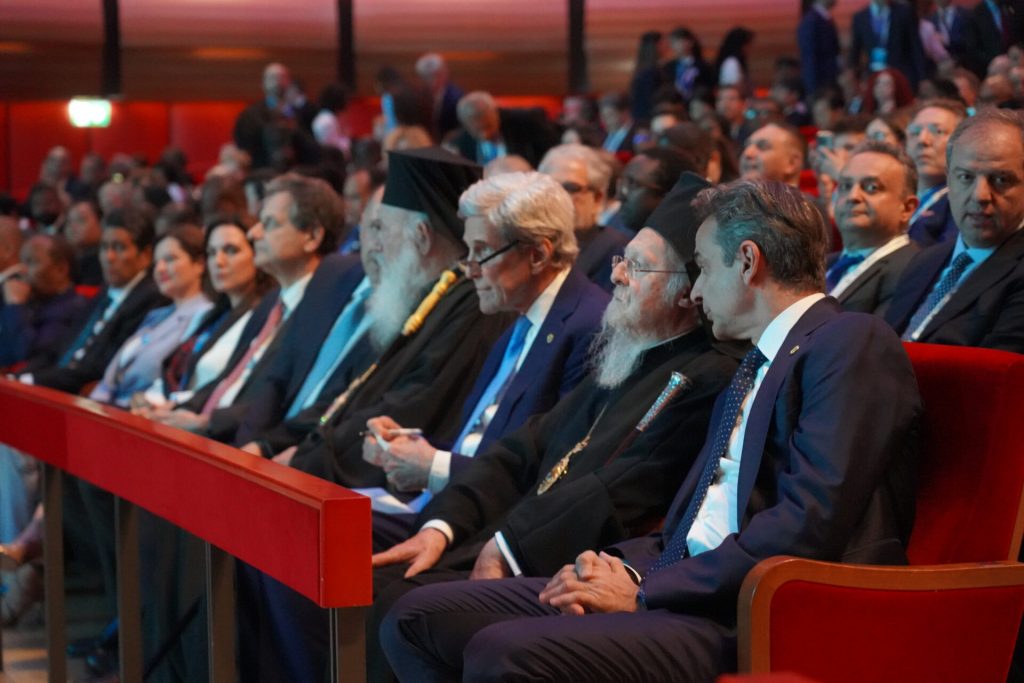
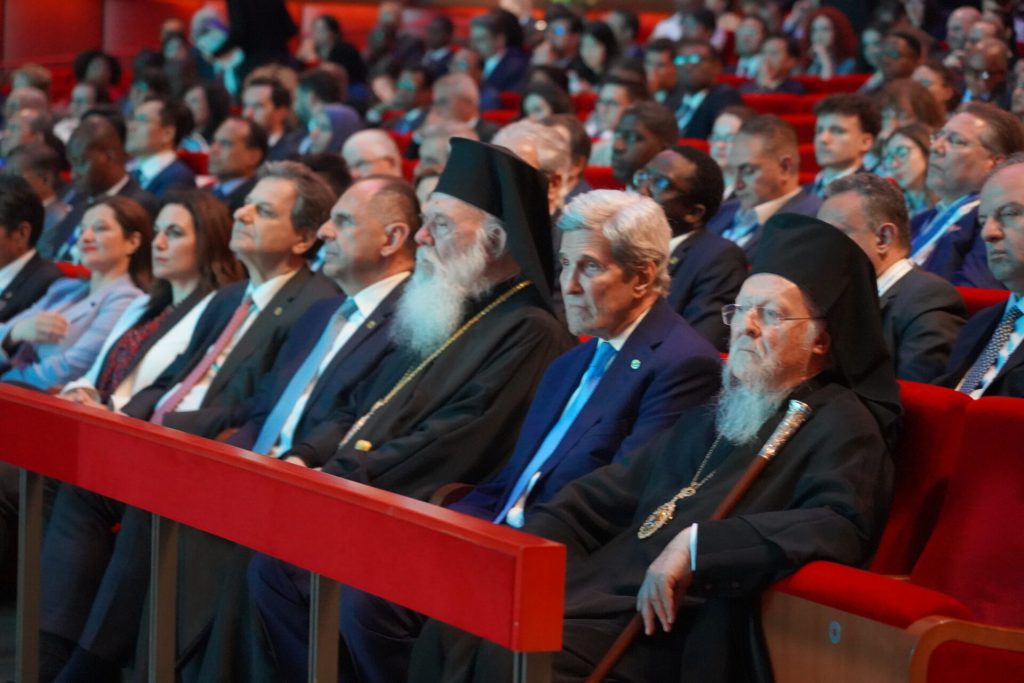
Φωτό: Νίκος Παπαχρήστου

